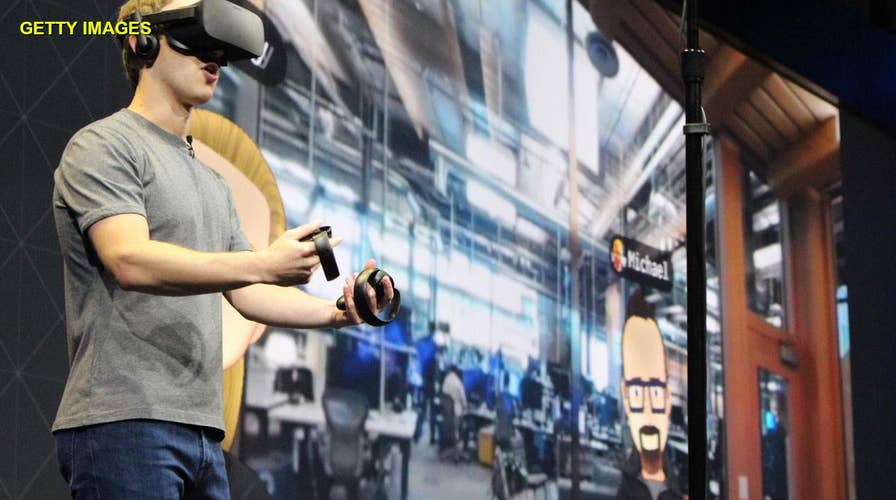Mark Zuckerberg wants Facebook to build a mind-reading machine
Speaking at Harvard, Facebook CEO Mark Zuckerberg discussed the current research being conducted by the company into an interface that allows people to use their mind to navigate through augmented reality. While Zuckerberg assured those in attendance that there are no plans to produce a product that is surgically implanted in a person's brain, the idea of a device that can somewhat 'read minds' is sparking new privacy concerns.
If you're concerned about Facebook's privacy scandals or worried that it's listening in on your phone calls, you'll likely be disturbed by CEO Mark Zuckerberg's recent comments at Harvard.
Despite the fact that Facebook is under fire from Sen. Elizabeth Warren, D-Mass. and facing more skepticism from the public about its business practices, the tech giant's chief executive officer discussed the company's research into a brain-computer interface that would allow people to use their mind to navigate through augmented reality.
Even though this might sound creepy, don't worry, Zuckerberg said they have no current plans to develop surgically implanted chips. The idea would be to produce some type of external device, perhaps glasses, that allow users to control digital additions to the landscape without speaking or typing anything.
When the moderator, Harvard law school professor Jonathan Zittrain, chided Zuckerberg about the "Fifth amendment implications" of such a technology, the CEO responded with something that sounds familiar to anyone who has paid attention to Facebook's privacy scandals since Cambridge Analytica.
"I mean, presumably this [augmented reality technology] would be something that someone would choose to use a product. I’m not — yeah, yeah. I mean, yes, there’s of course all the other implications, but yeah, I think that this is going to be — that’s going to be an interesting thing down the line."
The technology that Zuckerberg has described could be used in conjunction with a new product or as part of headsets manufactured by Oculus VR, which is owned by Facebook.
Zuckerberg explained that something implantable would not scale: "If you’re actually trying to build things that everyone is going to use, you’re going to want to focus on the noninvasive things," the tech mogul said.
FACEBOOK CRACKS DOWN ON VACCINE MISINFORMATION
He elaborated on why he's bullish about augmented reality.
"The way that our phones work today, and all computing systems, organized around apps and tasks is fundamentally not how our brains work and how we approach the world," Zuckerberg said at Harvard. "That's one of the reasons I'm just very excited long-term about especially things like augmented reality because it'll give us a platform that I think actually is how we think about stuff."
Zuckerberg described the technology's possible benefits, according to Wired, like this in 2017: “Our brains produce enough data to stream 4 HD movies every second. The problem is that the best way we have to get information out into the world—speech—can only transmit about the same amount of data as a 1980s modem. We’re working on a system that will let you type straight from your brain about 5x faster than you can type on your phone today. Eventually, we want to turn it into a wearable technology that can be manufactured at scale. Even a simple yes/no ‘brain click’ would help make things like augmented reality feel much more natural.”
CLICK HERE FOR THE FOX NEWS APP
Although there has been a lot of talk and hype about augmented reality's potential future development, thus far even virtual reality headsets and glasses have not caught on with most consumers.

